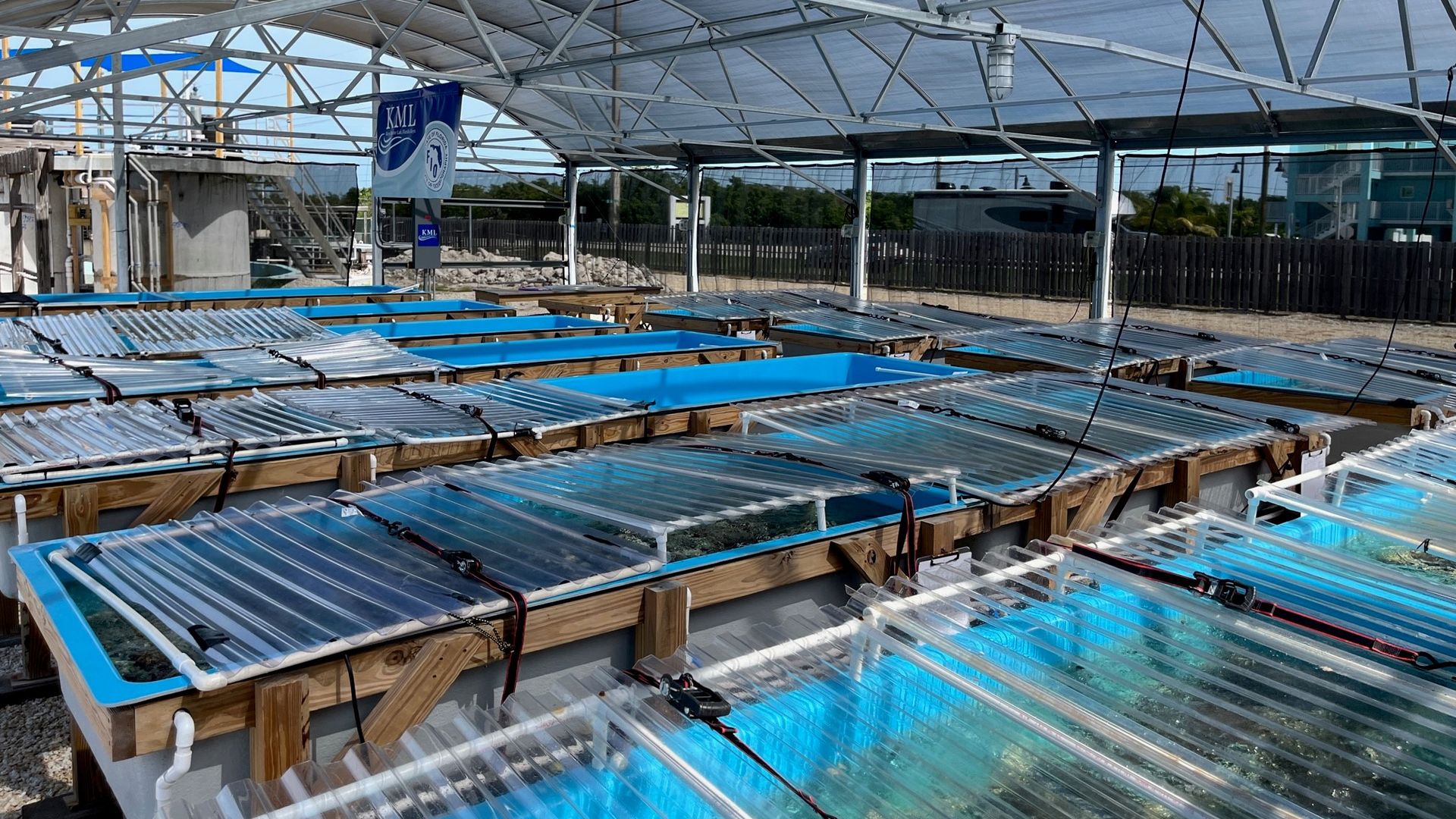Nov 1, 2023 - News
Rescued corals return after historic ocean heat
Add Axios as your preferred source to
see more of our stories on Google.

Temperature-controlled seawater systems at the Keys Marine Laboratory. Photo: Courtesy of the Florida Institute of Oceanography

